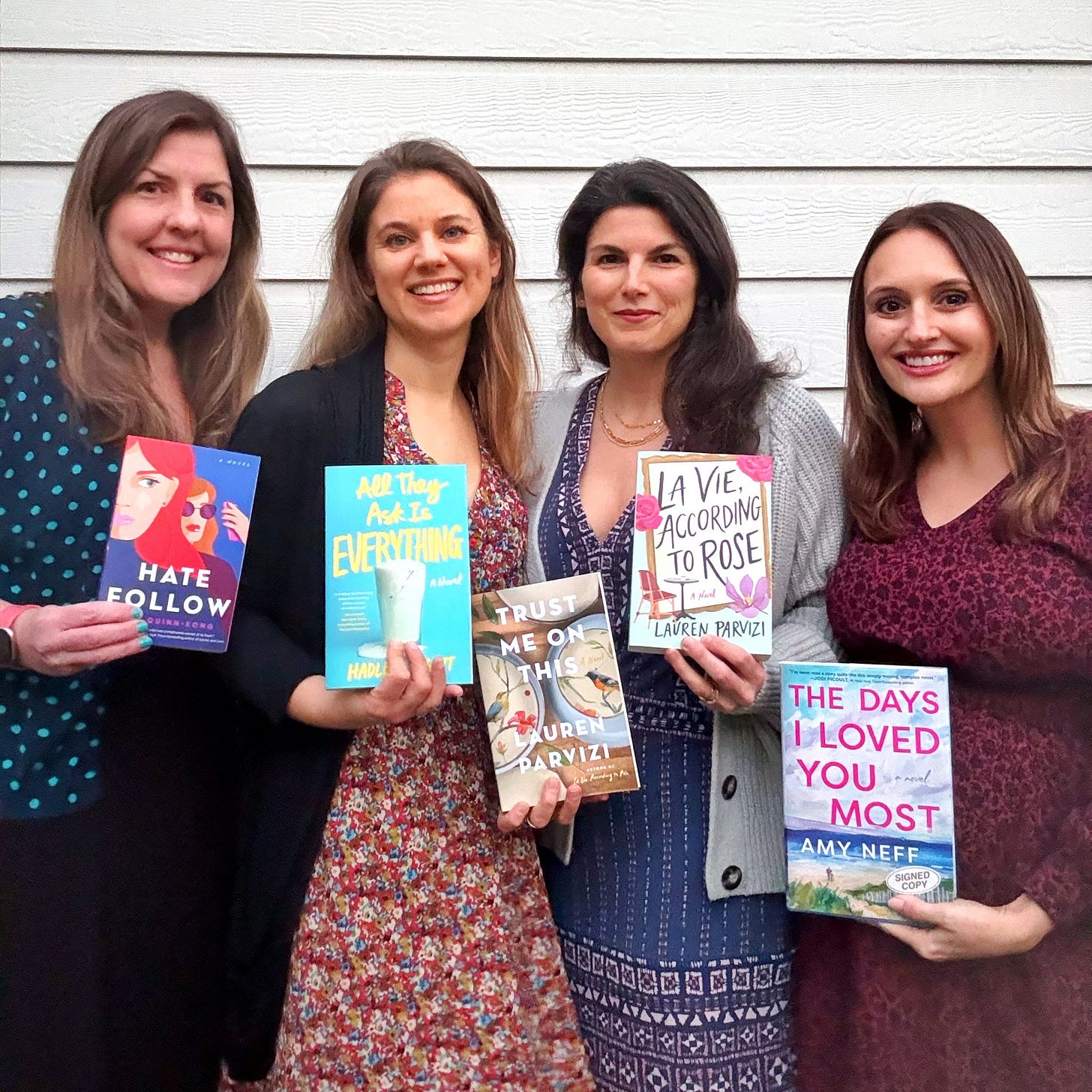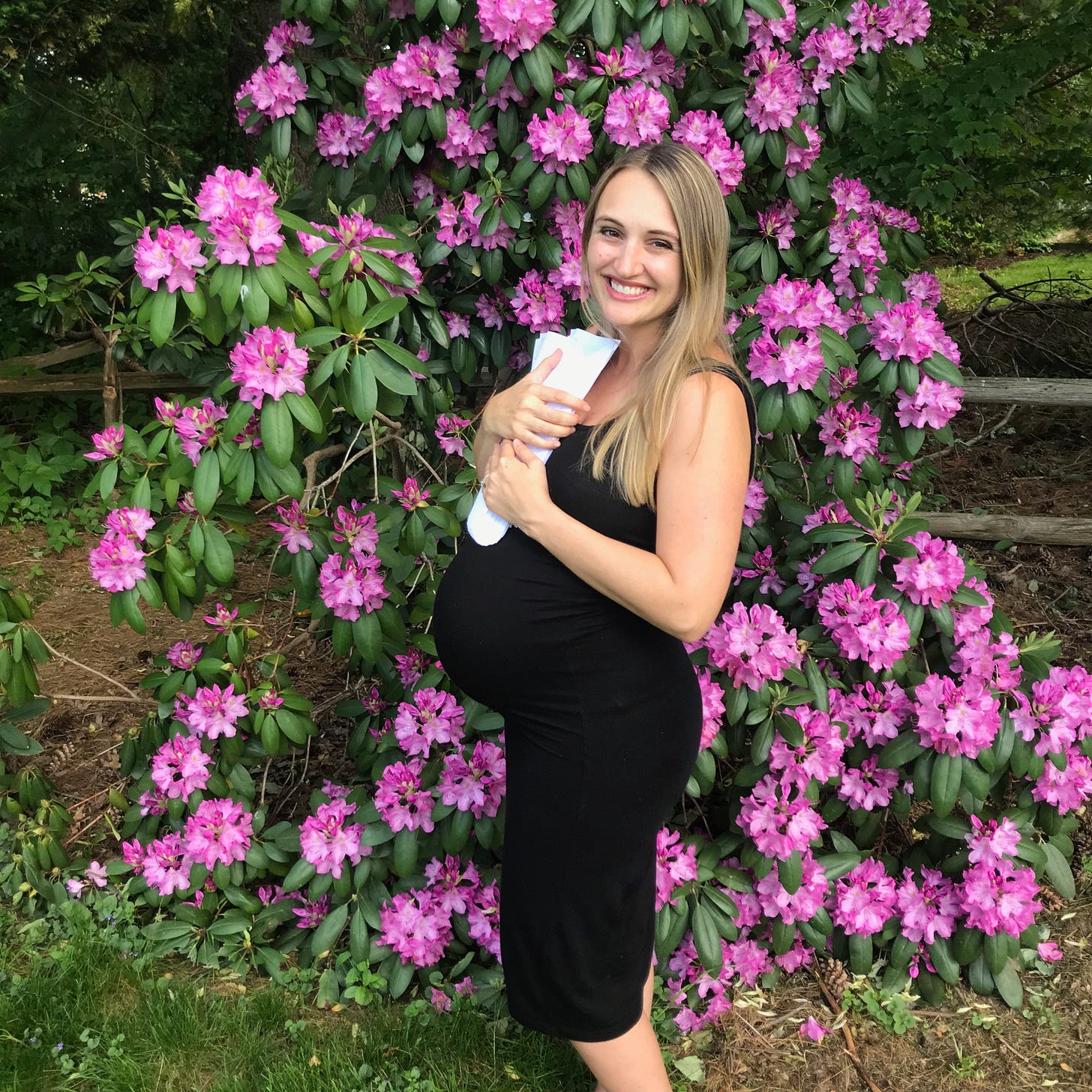How to Ditch Your Limiting Beliefs and Boost Your Creative Drive
If we can believe in the worst possible outcomes, can we also believe in the best ones?

We all carry beliefs within us about what is possible, where we belong, and what we can expect from our creative lives, but just because we hold onto these beliefs, it doesn’t make them true.
I (Amy here) am a big fan of the weekly 3-2-1 Newsletter from James Clear, author of Atomic Habits, full of little mindset nuggets and wisdom that can nearly always be applied to the creative life. Clear ends each newsletter with a question to ponder, and this one hit me so hard, I immediately took a screenshot and sent it to the group chat.
“Is your default setting to defend your limitations or expand your possibilities?”
Whew. If you aren’t used to confronting your limiting beliefs, this may take some time to accept. It may even make you defensive! You have good reason to have those limitations; you have real life stuff you’re dealing with that interrupts your creative life. Of course, it would be nice to live in the world of possibility, but reality does exist etc, etc. But let it sink in. Are you already doing it, defending those limitations again?
Limiting beliefs are what they sound like: something you believe to be true that won’t allow you to accept that bigger possibilities or positive outcomes could also be true. But the funny thing about beliefs is that they can be changed over time. And they aren’t based in fact but in expectation. So if we can believe our book is terrible and will never be published and we aren’t cut out for this, can’t we also believe just as whole-heartedly that our books are great and worthy and will find their homes and readers?
I’ve been working on recognizing any limiting belief as it enters my mind, big or small. That’s the first step. Recognizing it.
Ask yourself, is this a fact? Or is this just something I have convinced myself is true?
For example, here is a common one many authors face: Publishing is flooded and there is no room for me. Once you recognize it, you can work to dismantle it. But isn’t it also true that new books are published every week? Isn’t it also true that even if not every author breaks through, some do?
One limiting belief I am constantly battling is a belief that I don’t have enough time to put into this next creative project. I am 32 weeks pregnant as I type this, and prepping this post in advance since my baby will have been born by the time you are reading it. Time constraints are very real in my life, as I already have two small children. This is not a unique problem—no one has enough time!
But the belief is actually the thing holding me back, not the reality. As evidence, I revised the last seven (of ten) drafts and queried The Days I Loved You Most while pregnant and raising newborns and toddlers full time, mostly through the pandemic. So obviously, I did not have time then either.
But I made time, and I broke the work into smaller more manageable pieces, and I made it a priority because I believed that I could. And I did. And I will again. Despite reality, despite the limiting belief. I will dismantle it because I have before. And look at what happened when I did. It turned out not to be so true after all.

What if instead of defending our limitations with every reason we won’t succeed, we spend that mental energy expanding our possibilities? What if we allow positive beliefs to carry us through to positive outcomes?
Okay, (Writing) Group Chat, this is easier said than done. What are some limiting beliefs you’ve worked through, or are still working through? Have you found ways to dismantle them? How can you focus on expanding possibilities instead of your limitations?
Lauren: This one hits close to home, because, ooh boy, have I had some limiting beliefs to dismantle. Had, and still do! One that I’ve worked really, really hard to rewire is related to that common publishing (mis)belief Amy mentions above about worrying there’s not enough room for your book in publishing. My scarcity mindset has certainly held me back from opportunities, but worse than that, it’s clouded my rational thinking with jealousy. Not so much, I deserve what they have and they don’t. (Okay, for the sake of full transparency, I’ve certainly thought that, on occasion.) But more like, why not me? Which then devolves into, There must be something inherently wrong with me.
Although I do agree with book coach and author Camille Pagan that jealousy can be incredible fuel for your creative fire, there is a tipping point that takes you into icky green monster territory, and I’ve landed there at times. But now that I understand my scarcity mindset for what it is—a thought pattern rather than something based in fact—it’s much easier to stop the spiral before it begins. The green monster still rears its head, because, hey, I’m only human, but now I see it for the imaginary beast that it is.
Erin: Like Amy, I struggle with wishing I had more time—both daily and in years. I’m the oldest in the group (tear), and I often wish I would have started writing fiction earlier. (Oh, what I could have done in my 20s and early 30s before kids sucked up so much time!) I also think I’ve been feeling my age because I’m currently running the intern program at my day job, so I’m spending lots of time with college students. They are smart and eager and lovely—and I totally remember being them! Alas, I am now the elder statesman, so I am trying to embrace everything that comes with that, including a wealth of life experience, knowing who I am, and no longer putting up with BS.
My other tactic is to remind myself that so many of the super popular authors today are women in their 50s and 60s, including Kristin Hannah (64), Jennifer Weiner (55), and Elin Hilderbrand (55). And, of course, there’s Bonnie Garmus who published her massive debut, Lessons in Chemistry, at 64. So next time I have the limiting belief of, “I started writing fiction too late,” I’m going to focus on the fact that life is long—and publishing (many) novels is simply my second act.
Hadley: Such a great question! This prompt brought up so many feelings that I actually had to get out my notebook and journal for a while before I felt ready to answer. Like Lauren, I’ve had to overcome a LOT of limiting beliefs on my path to becoming an author, and I still fight against negative thought patterns daily. One belief I’m currently struggling with in terms of my WIP is “this book isn’t good enough.” I’ve been working on this project on and off for years now, but for a long time I didn’t share it with anyone—not even our group!—because I was afraid if I shared a less-than-stellar draft, everyone would realize I’m an imposter, not a “real” author after all. (Apparently my brain thinks “real” authors produce perfect drafts right from the get-go?)
One technique I’ve found super helpful is adding “yet” to the end of my limiting beliefs. For instance “this book isn’t good enough YET” feels way more hopeful and embraces the possibility that while my draft still needs a lot of revision, it’s well on its way to becoming the book I want it to be. This technique has worked for other limiting beliefs as well: “I’m not a real author” sounds so much harsher than “I haven’t achieved my big author goals YET.” For me, it often feels like too large of a mental leap to embrace the opposite of my limiting belief, so I try instead to embrace “YET,” which opens the door to positive future outcomes. Baby steps!
Same questions to all of you—please share in the comments below. Have you worked on limiting beliefs? Is there still something holding you back? What are some alternate possibilities that you can spend your mental energy on? We would love to hear from you!




Some of my limiting beliefs are along the lines of: why should I be able to become a writer and fulfill my dreams when most people don't? What makes me so special that I think I can have an extraordinary life where I one day become a published author?
I love the honest conversation about this! I think we should all be having more of it. I find there is often a "fake it til you make it" attitude that pervades publishing, and while sometimes that can work, it can also be lonely to not have anyone to discuss your fears with!